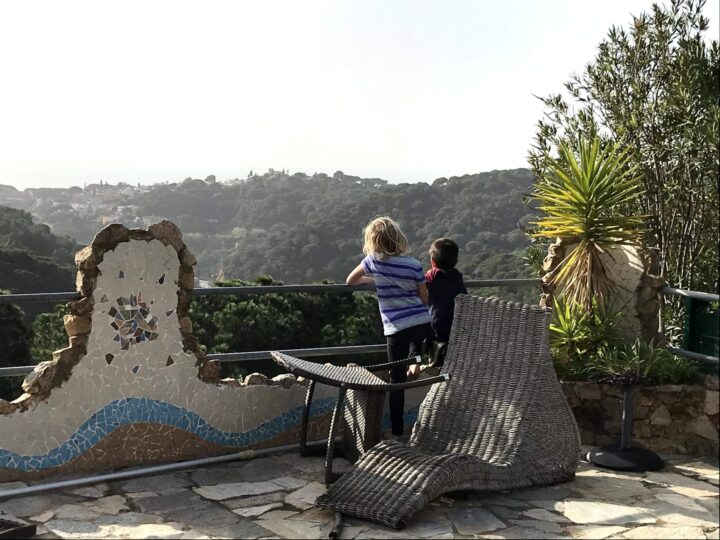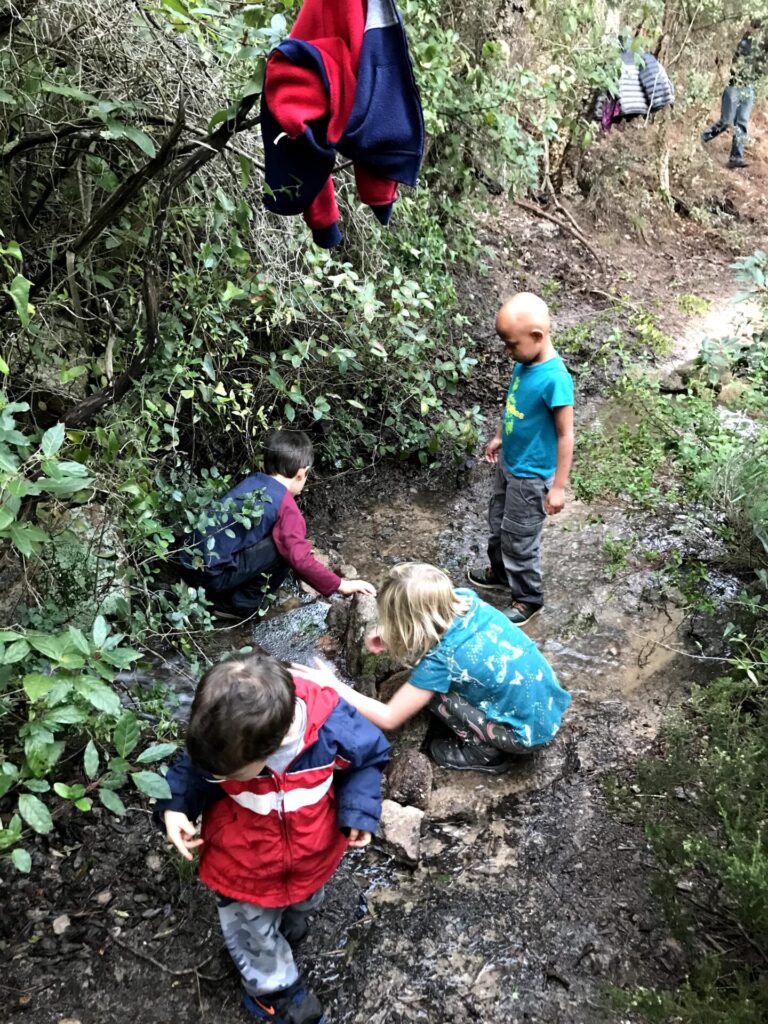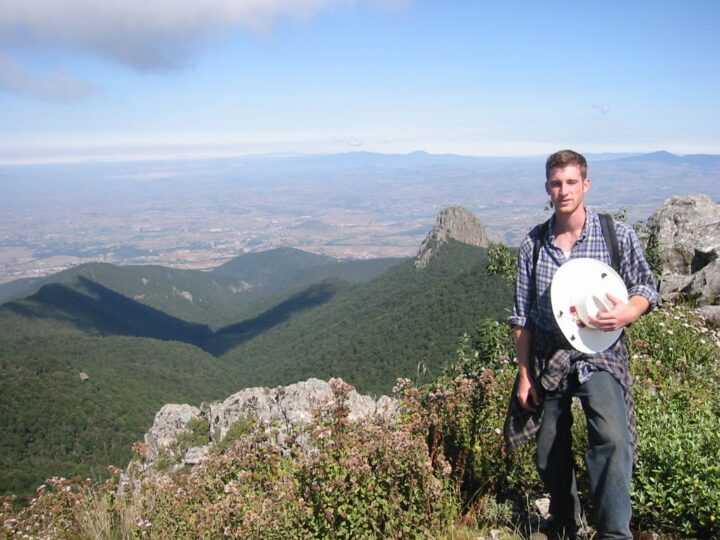How to Have Carefree and Happy Travels With Kids

We travel with our kids to expand their world while we expand our own. But kids bring unique challenges to the travel experience. While I do not promise hassle free travel—even adults whine—we’ve discovered through trial and error, and a bit of empathy, ways to ensure an overall good experience.
In the Mind of a Child
Imagine you are taking an overnight train in China. You booked it too late and the sleepers are all taken. In fact, the padded seats are all taken as well. So you booked a hard seat on which you will somehow exist in misery for ten hours. Maybe you’ll sleep, but it won’t be enough. Regardless, you won’t dare leave your seat even to go to the bathroom. As soon as you do one of the countless standing passengers will pounce like a cat on a can of wet food.
To understand why kids have the potential to make travel miserable, let’s try to understand it from their perspective. But first, how will you, the parent, fare on this hypothetical journey?
First of all, you won’t freak out. Comparing yourself to the poor standing masses envying your privileged rear end, you’ll regret your earlier trepidation about the hard seat. You will suffer, but you will do so with pride. Here you are, eating bitterness (吃苦) like a local. You are earning the right to stop thinking of yourself as a pampered Westerner (though you know you still are). You’ll hold your business like a champ, rightly calculating your seat to be more precious than bladder relief.
Minutes and hours will go by contemplating the people that surround you. What are their lives like? Are they as curious about me as I am of them? Why are there so many people, and why don’t the powers that be run more trains? Curiosity and anticipation distract from the stiffness and exhaustion.
No let’s try to see it from the child’s point of view. He also feels exhaustion and discomfort. He wonders how long he has to endure this. Mom and dad say for nine more hours. In other words, world without end.
Mom and dad said we were traveling to have fun. Do they think this is fun? This is the opposite of fun. Can’t we just get off at the next stop and sleep? Mom and dad don’t seem to know what they’re doing here. Maybe we’re lost. I don’t know where we are going or why. Hey, here’s an idea. Mom and dad are all-powerful, and they could stop this train anytime they want. Maybe I can convince them I’m having a bad time if I just let loose and freak out…
1. Let Your Child Into Your Head
Doesn’t my child understand her privilege? Doesn’t she know that delayed gratification is a part of life? That the destination will be worth it? Can’t she appreciate the expense and effort we put into planning this? Doesn’t it register how awesome it is to be this far from home where everything is new and unexpected? Of course, your child doesn’t understand any of this. We all start out ignorant.
One way to reduce your child’s travel anxiety is to tell them everything. Your reasons for travel, why you chose the destination, how you manage your own discomfort and boredom. Why taking this godforsaken train was preferable to spending another week at the in-laws
I’m not always the best at explaining myself. It’s a shortcoming of mine. I tend to arrive at some insight and then forget the the process that led me to it. It’s like doing a long math problem, tearing off the bottom line with the answer, and tossing all the prior steps in the trash. Even worse, my amnesia causes me to assume I always knew the answer. And why the heck doesn’t everybody else know?
I’m trying to get better at showing my work. I’m trying to remind myself that I too lacked perspective once. This writing project (the Slow Camino blog) is partly an effort to improve my ability to put words to my thought life.
Communicating what’s in your head to your kids, rather than assuming they know (or should), could be one way travel expands you as a person. It’s likely that your child’s growth and education were what motivated you to take them along.
Explaining yourself is exhausting. Unraveling your motives and perspective is hard work, and sometimes awkward.
But they won’t pick it all up by osmosis. You need to open up and share. I assure you it’s rewarding. And your kids hunger for that knowledge.
2. Cut Waiting in Line Out of Your Itinerary
Our most traumatic memory of total public meltdown happened on the last leg of a grueling three leg flight from Chicago to Indonesia. Due to an initial eleven hour flight delay, we hadn’t slept (continuously in a bed) more than six hours in the previous day and a half. We were just one more security checkpoint in Singapore’s airport and a measly two hour flight away from paradise.
That is the point where Oliver, three at the time, handed in his resignation, effective immediately.
The result was an embarrassing spectacle. I carried him to the bathroom under my arm like a piece of luggage and my wife and I convinced him by force that we had to get to our gate. NOW!
Any time your kids are subjected to forced inaction (i.e. lines) or forced action (i.e. racing to the gate) you are risking an unpleasant situation.
I’m not suggesting you avoid lines or schedules completely. Travel demands it, and your kids will have to deal with it. It builds character.
What I’m suggesting is not planning your whole trip in such a way that waiting takes up a significant part of the whole. You don’t want to be in a constant rush to make the bus station so you can get to the next attraction, only to spend more time waiting in line.
Nobody centers their trip on long waits in line, long train rides, or stressful near misses. But it’s easy plan an itinerary where that is precisely what happens.
Here are some ways you can plan your itinerary around enjoyment and spontaneity rather than waiting and transit.
Don’t Overpack your Itinerary
Just because your daily planner is one appointment after another doesn’t mean that’s an ideal way to plan a vacation.
Plan no more than one outing per day. Blocking out your itinerary hour by hour is a recipe for parental stress and child intransigence. The nuts and bolts of getting around will take longer than you expect, especially in a foreign country where you barely know how to buy a metro ticket. If you build in plenty of buffer and downtime, you can avoid episodes where you are running through stations and terminals dragging your suitcase in one hand and your screaming child’s arm in the other.
Or, here’s a radical idea. Don’t plan any activities. Just do what you feel like at any moment. Some of our most satisfying trips had little to no prior agenda.
Avoid Tourist Traps
Lines are just people. And where there are more people there will be longer lines. Profound, I know.
What that means is if you want to trade in hours of waiting for hours of enjoyment, you need to avoid places that are known for being over-crowded. Tourist Traps.
Instead of Florence, go to Lucca. Instead of a famous city, venture out into the surrounding towns or countryside. Instead of waiting in line all morning to take a selfie on the Eiffel Tower, spend the morning at a patisserie drinking coffee. Then wander the streets at your own pace and see what you discover.
Rent a Car
Yes, public transportation is more eco-friendly for single travelers. But the per person carbon savings level out the more people you pack into the car.
Renting a car gives you flexibility. Leave when you’re ready. Stop when someone has to pee or wiggle their legs. Come back when everyone’s tired. Pack a bag full of snacks, wet wipes, and emergency toilet paper without having to carry it around or worry about leaving it on the train.
It also opens up opportunities to travel to less-touristed places. Just make sure you have good GPS.
In many countries car rental is inexpensive. For our family of five, it’s often cheaper than the alternatives.
3. Keep it Simple
Impressive Instagram posts don’t equal satisfaction. And world famous tourist traps come with a cost. Long waits in line. Time limits. Nothing is more unpleasant than telling a child they have to leave when they’re in the zone. And then, there’s the literal cost.
Consider planning activities that are simple and unstructured. Often what we anticipate to be fun and what’s actually fun are two different things. Don’t let the splashy marketing worm its way into your itinerary.
Some of the best travel experiences you’ll ever have are free.
A self-guided hike through the forest means hours of fun throwing rocks into the river and epic stick battles.
Another activity the kids will love—write this one down—the child-guided tour. The kids take the lead and decide where to go. It gives them all the control, and they love it.
It is most practical to do this in towns where there is little to no car traffic. We did it in Pals, a medieval town in Spain with cobblestone streets. The two boys strategized at each fork in the road on where to head next.
On Gili Air, a tiny Indonesian island with no motor vehicles, Oliver and I had a morning ritual of wandering the streets, saying hi to the early risers, and commenting on the stray dogs and chickens.

4. Establish a Routine
It would seem the main reason for jetting off to an exotic hideout is precisely to leave your daily routine behind. But something about a daily routine seems to lower kids’ stress.
Perhaps, being mostly powerless over the itinerary, it helps to know what to expect and when. Maybe on some subconscious level it conveys safety and normalcy, even though the scenery has changed. Or maybe it prevents time from turning into an incoherent run on-sentence with no punctuation.
In any case, nobody says it has to be the same routine as at home. Meals and naps for the little ones (and big ones) are part of the routine, just like at home. But you can also add novel daily habits. Perhaps a daily pre-breakfast walk on the beach. Or capping off each night laying the hammock discussing whatever and gazing at the night sky.
5. Manage Expectations
My oldest son suffers from high expectations. He takes the inevitable let-down hard.
We deal with it by calibrating expectations. If there is any chance that some future fun thing might not happen, we either don’t mention it or we very clearly explain that the odds of it happening aren’t guaranteed.
Not every child is like that. Our second son lives in the moment and spends little energy on anticipation.
Nevertheless, we make sure to under-promise and over-deliver.
In addition to this, you must also manage your own expectations about your kids’ behavior. Children will have their weak moments. Parents will have their weak moments. Sometimes the weak moments overlap. But if you don’t expect perfect behavior all the time, you’ll be more likely to appreciate the moments when they do shine, and go easy on them when their attitude is less than stellar.
6. Properly Estimate ETA (And Why It’s Important)
My wife has a bad habit of taking travel times from Google at face value. If it estimates a half hour to get there, she thinks she can announce “come on, let’s go” a half hour before we need to be there and get there on time.
Sorry, but the world doesn’t work that way. It takes time to get the all those shoes on before you can even make an exit. A kid has to pee on the way. The fastest route is under construction. The ticketing machine won’t take your credit card the first six tries.
My advice? Take the estimated time and add in lots of buffer. If Google says a drive is going to take seven hours, it’s going to take ten. For more complicated trips (i.e. public transportation in a foreign country), you may as well just double the estimated time.
Mapping apps give estimated travel times that assume perfection. As if your car doesn’t need gas, your family doesn’t use the bathroom, and your windshield doesn’t accrete so many bugs that it looks like a Jackson Pollock masterpiece. Real life is full of delays and misfires, so don’t stress yourself with an overly optimistic time estimate.
You might ask, what does this have to do with happy kids? Well, nothing makes a parent more impatient than running behind schedule at the threat of missing some mission-critical target. Like getting to your hotel before the front desk closes.
A well buffered ETA means less parental stress. Less parental stress means more patience and mental bandwidth to deal with kid issues before they escalate.
7. Be Patient with Your Kids
We’ve all been there. The mortifying public meltdown.
You’ve and your daughter have been inching through the line for a half hour. Her legs are tired and she won’t tolerate this for one more second. She dials up the whine, squeezes out some tears, and turns her body into a floppy-soggy rag doll. This at the exact moment you are supposed to step up to the ticketing counter. The lady at the desk is smiling, but her eyes are impatient. The people stuck behind you are sighing and wondering why parents these days don’t raise good kids anymore.
How do you react when you are ashamed? Or stressed? Or when things are taking longer than they should?
I get angry and rigid. My gut instinct is to force compliance at all costs, for the good of everyone involved, supposedly.
But practically speaking, that impulse is counterproductive. When a kid is upset, they become a non-Newtonian fluid. The harder you push, the harder they resist. A softer, more empathetic approach often turns out to be the fastest way to get things flowing again.
Usually, these conflicts happen when you’re in a rush. So, like, all the time. Kids, on the other hand, are never in a rush (to my eternal consternation). They hate rushing. More precisely, they hate being rushed.
They want you to slow down and notice them and know what they are experiencing. Whether that’s tired feet, a hungry belly, or some banal thing that’s fascinating them at the moment. Slow down, notice them, and then tell them what needs to happen and why. Always why!
Even easier is to not be rushing around in the first place. You’re on vacation for Pete’s sake!
But sometimes you can’t avoid it. You miscalculated. The flight left eleven hours late. Sometimes you have to just push everyone forward and get it done. It’s your call.
But you might find that stopping, kneeling so you’re eye to eye, and having a minute of dialogue with your child is the fastest way out of the logjam.






